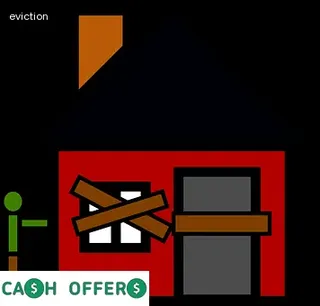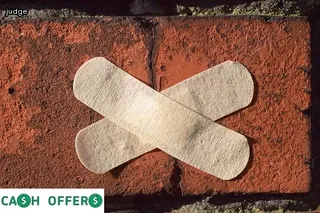In Maryland, it is important for property managers and landlords to understand the eviction laws. The Maryland Code outlines general procedures for landlord-tenant eviction proceedings that must be followed by both parties.
These laws outline the steps a landlord must take when evicting a tenant, as well as any tenant protections in place. It is essential to understand the process of filing an eviction lawsuit, the required documents, and how much time is given to tenants to leave the property.
Additionally, it is also important to know what kind of notice must be given before eviction proceedings can begin and any other requirements that may apply in certain cases such as those involving nonpayment of rent or lease violations. Landlords should ensure they are aware of all applicable state laws and regulations before initiating any action against a tenant.

When a landlord decides to pursue an eviction, they must follow certain steps and ensure they are operating within the law. Maryland landlords have the right to ask for possession of their property if the tenant has violated their lease agreement or failed to pay rent.
Before initiating legal proceedings, landlords should provide tenants with written notice that outlines the violation and advise them of their right to cure it if possible. The notice should also specify when the landlord will file an eviction complaint if the issue is not resolved by a certain date.
If tenants do not respond or take action after receiving the notice, landlords can then proceed with filing a Complaint for Possession in court. After being served with legal documents, tenants have three days to respond and request a hearing before a judge will order for them to leave.
It is important for landlords to understand all of these steps before seeking possession of their property so that they can abide by Maryland laws and avoid potential legal issues down the road.
When a landlord or property manager decides to file an eviction complaint, there are several reasons that must be taken into consideration. These reasons can include late rent payments, property damage caused by the tenant, illegal activities taking place on the rental property, or if the tenant has violated any of the terms outlined in their lease agreement.
Eviction complaints can also be filed if the tenant has stayed beyond the expiration date of their lease, or if they have not paid utility bills or other fees associated with the rental property. Additionally, landlords may also file an eviction complaint against a tenant due to disruptive behavior such as excessive noise and/or unruly guests.
It is important for landlords and property managers to understand all of their rights when it comes to filing an eviction complaint in order to ensure that everything is done legally and correctly according to Maryland law.

The Maryland Eviction Process is a complex one, and it pays for property managers and landlords to be aware of the steps they need to take in order to successfully evict a tenant. The first step is to issue the tenant with an official notice of the eviction, giving them at least seven days’ notice if they are behind on rent or have violated the terms of their lease.
After this period has expired, landlords must file an official complaint with their local court and serve the tenant with a summons. A hearing will then take place before a judge, who will assess both sides of the story and decide whether or not an eviction should be granted.
If so, a writ of possession will be issued by the court, which gives landlords permission to remove tenants from their property. Finally, any goods left behind by tenants must be stored securely until they can arrange for collection or disposal.
Property managers and landlords should familiarize themselves with these steps in order to ensure that any evictions are handled correctly within Maryland state laws.
In Maryland, the eviction process is a multi-step process that requires careful attention and adherence to the laws. It typically starts with a written notice filing with the court by the landlord or property manager.
This notice must contain all relevant information including whether it’s for failure to pay rent, lease violation, or other reasons and must be served properly on the tenant. The tenant then has an opportunity to respond and if they don’t, a hearing will usually be scheduled in front of a judge.
The judge will then decide if the eviction is valid or not based on the law and evidence presented by both parties. If it is decided that the eviction is valid, then an Order for Possession will be issued and a Writ of Possession may follow which gives authority to the Sheriff to remove any occupants from the premises.
Finally, after removal of any occupants, the landlord or property manager can then regain possession of their property.

As a tenant in Maryland, it's important to be aware of your rights and obligations. The landlord-tenant law protects both parties from unfair treatment and sets out the responsibilities and expectations for all involved.
Knowing your rights can help you navigate the eviction process if necessary. As a tenant, you have the right to receive proper notice before eviction, so that you can prepare to leave or attempt to negotiate with your landlord.
You also have the right to a hearing before an eviction takes place, so that you can explain why you should not be evicted. You must be provided with a written lease agreement outlining all terms and conditions agreed upon by both parties as well as details on how any disputes will be settled.
Finally, it is illegal for a landlord to threaten or use physical force against a tenant in order to evict them or collect rent payments. It is also illegal for a landlord to change locks or shut off utilities without proper notice.
Knowing these rights can help protect tenants from being unfairly evicted in Maryland.
When it comes to eviction proceedings in the state of Maryland, there are some specific regulations for terminating a tenant's lease with cause. These rules must be followed carefully in order for the landlord or property manager to properly navigate the process.
The most important element to keep in mind is that the tenant must be given proper written notice prior to termination. This notification should include the specific reason for eviction and provide an opportunity for the tenant to dispute any claims made against them within ten days of receiving written notice.
Additionally, if a tenant has caused significant damage or is engaging in illegal activities on the premises, they can be evicted without prior notification. In these cases, landlords should always have proof of damages or other violations before beginning proceedings.
Lastly, while it may seem simpler and faster to evict a tenant without following legal protocol, doing so could leave a landlord vulnerable to lawsuits down the road. Knowing and following all applicable laws is essential when navigating Maryland's eviction process.

Evicting tenants without cause is a controversial topic in Maryland and its legality is often debated. Landlords and property managers must be aware of the laws governing evictions to ensure that they are not violating any state statutes.
While some states allow for landlords to evict tenants without cause, this type of eviction is not legal in Maryland. The Maryland eviction process requires landlords to have a valid reason for termination of tenancy and every step of the process must be completed properly in order to comply with state laws.
To successfully navigate the eviction process, landlords must understand their rights and responsibilities under Maryland law, as well as become familiar with the applicable forms and procedures associated with initiating an eviction. Furthermore, it is important for landlords to keep detailed records throughout the entire process, should they need to prove their case if a tenant challenges an eviction in court.
When it comes to evicting a tenant from a property, it is important for landlords and property managers to understand the process of asking for possession of a property in Maryland. Depending on the reason for eviction, there are different steps that must be taken in order to properly and legally ask for possession.
It's important to know the legal requirements that must be met before initiating the process such as proper notice and filing paperwork with the court. Landlords should also be aware of any applicable state or local laws that could affect the eviction process.
Understanding these laws can help ensure that evictions comply with all applicable regulations and proceed smoothly. Additionally, it is important to keep detailed records of all communications between landlord and tenant regarding the eviction process so that if legal action is required, evidence is readily available.
The key to successfully navigating an eviction in Maryland is knowledge – having an understanding of all relevant laws, regulations, paperwork and communication will make the entire process less stressful for both parties involved.

When navigating the Maryland eviction process, property managers and landlords must remember to download the necessary forms. There are a variety of documents required for the eviction process, including the Complaint for Rent Escrow and Summons, Notice to Quit (non-payment), Payment Agreement, and Order of Possession.
All of these documents can be found on the Maryland judiciary website. Before downloading any form, it is important to make sure that it is applicable to your circumstances and that all information provided is accurate.
Furthermore, make sure you double check with your local court for any additional forms or instructions needed before downloading any documents online. In order to ensure a smooth eviction process, it is essential that all paperwork be properly completed and filed in accordance with Maryland law.
Serving notice for an eviction in Maryland is a necessary part of the process that property managers and landlords must go through when evicting a tenant. Landlords should make sure they adhere to the proper protocols and regulations that are outlined in state law.
In Maryland, there are several types of notices that can be served depending on the situation, including Three-Day Notice to Pay Rent or Quit, Thirty-Day Notice to Terminate Tenancy, and Unconditional Quit Notice. All notices must be clearly written and include specific information about the rental agreement and reasons for termination before being served.
Once served, it is important for landlords to document proof of service such as a signed affidavit from the tenant or an independent third party who witnessed delivery of the notice. Additionally, if legal action is pursued after service of the notice, landlords must provide evidence that proves they followed all appropriate steps in order to meet the requirements of Maryland's eviction process.

It is important for landlords and property managers to understand the Maryland eviction process in order to properly comply with a notice from a landlord. The first step is to review the notice carefully, making sure that all information is correct, including dates and deadlines.
This will also help to determine if there is any legal basis for contesting the notice or if the tenant has any rights. Next, it is important to follow all local laws related to the eviction process and ensure that proper documentation and paperwork are filed on time.
Furthermore, landlords must adhere to all requirements related to serving notices on tenants, such as providing written notices in person or posting them in public areas. Last but not least, it is essential that landlords understand their rights during an eviction proceeding so that they can protect themselves and their property in case of any disputes.
When it comes to eviction proceedings in Maryland, the landlord or property manager must be fully prepared with all of the necessary documentation. A wide range of evidence is required in order to successfully move forward with an eviction hearing.
This includes written agreements that have been signed between the landlord and tenant, as well as any other documents or information pertaining to the rental agreement. All communication regarding rent payments and potential violations of the lease agreement should be documented and included as evidence for the hearing.
Depending on the situation, other forms of evidence may also be helpful during an eviction proceeding, such as photographs or video recordings of any damage to the property caused by a tenant. It is important for landlords and property managers to ensure that they have collected all relevant evidence before filing for an eviction case, as this will help strengthen their case in court.

DoorLoop is an innovative platform that enables property managers and landlords to streamline their rental operations, ultimately putting their rental portfolio on autopilot. By leveraging DoorLoop's comprehensive suite of tools, you can easily navigate Maryland's eviction process without the hassle of manual paperwork.
This includes automated rent collection, tenant screening, lease signing, and online payments. With DoorLoop’s integrated system, managing your rental portfolio can be done in a seamless manner with increased transparency and efficiency.
Furthermore, DoorLoop also allows for easy communication between tenants and landlords so that any issues or concerns can be addressed quickly. With its straightforward setup and user friendly interface, DoorLoop provides an efficient solution for putting your rental portfolio on autopilot so that you can focus more time on other aspects of your business.
Property managers and landlords can save time, energy, and money by automating their management tasks with DoorLoop. This platform helps streamline the Maryland eviction process by providing an easy-to-use eviction filing system.
The system keeps track of all relevant paperwork, court documents, and notices, making it easier to manage rental properties. Additionally, DoorLoop offers a variety of features that help property managers and landlords stay organized, such as tracking tenant payments and creating maintenance reminders.
By using this automated platform to handle the process of filing for evictions in Maryland, property managers and landlords will be able to save time and effort while ensuring legal compliance.

Property managers and landlords in Maryland must navigate a complex eviction process. DoorLoop can help save time and money by streamlining the process.
DoorLoop provides an online platform for filing court documents, tracking progress, and collecting rent payments. Property managers and landlords are able to track their cases more easily than traditional methods, ensuring smooth communication with tenants.
The platform also offers automated reminders to ensure all deadlines are met. Additionally, DoorLoop can be used to collect rent through secure online payments which helps speed up the collection of late payments while avoiding costly fees associated with paper checks.
With this automated system, property managers and landlords have access to a detailed overview of their cases at any time making it easier to stay up-to-date on the status of each one. Overall, DoorLoop is a great tool for saving time and money when navigating the Maryland eviction process.
DoorLoop's services can make navigating the Maryland eviction process much easier for property managers and landlords.
Requesting a demo of DoorLoop services will help you better understand the difference between notice to comply and an eviction complaint, as well as ensure that your free downloads are legally valid in Maryland.
Exploring DoorLoop's features and services can provide tips on how to make the most out of them, such as creating custom forms, setting up automated payment reminders, and tracking rental history.
From providing customizable templates to offering detailed reporting, DoorLoop offers a range of solutions to simplify the eviction process in Maryland.
In Maryland, the eviction process can move quickly. Depending on the county, a landlord or property manager can file an eviction lawsuit as soon as 14 days after the tenant has failed to pay rent or violated the lease agreement.
This is accelerated if the tenant has committed certain criminal activities such as drug-related offenses or illegal activity in the rental unit. After filing an eviction complaint with the court, a hearing will be scheduled within 7-10 days.
The judge will then decide whether to issue an order for possession of the rental property, which can happen immediately and allow for eviction of tenants within a matter of days. If the judge issues such an order, landlords are required to post notice at least 48 hours prior to any physical removal of the tenant from their residence.
However, even with this notice period, evictions in Maryland can move quickly and it is important for landlords and property managers to understand their rights and responsibilities under state law when navigating this process.

When a tenant receives an eviction notice in Maryland, the landlord must follow certain procedures to legally evict them. The first step is for the landlord to provide the tenant with a written notice stating the amount of rent owed, when it is due and how it should be paid.
If the tenant fails to pay or comply with the terms of their agreement, then the landlord can file an eviction complaint in the district court. This complaint must include information about why they are seeking eviction and how much money is owed.
Once filed, a hearing will be held where both parties can present their case before a judge. If the judge finds that there is cause for eviction, then they will issue an order of possession which directs the sheriff to remove any tenants from the rental property.
It is important for landlords and property managers to familiarize themselves with all of these steps prior to beginning an eviction process in Maryland so that they know what to expect and can navigate through it properly.
Yes, you can be evicted in Maryland without going to court. Known as an 'unlawful detainer' or 'constructive eviction', this type of eviction is usually used when tenants fail to pay rent on time or violate the terms of the lease agreement.
Under Maryland law, landlords must follow a specific process in order to lawfully evict a tenant. This includes providing written notice to the tenant informing them of their breach and giving them a period of time to cure the issue.
If they do not comply, then Maryland landlords can proceed with an unlawful detainer action outside of court. That being said, it is important for property managers and landlords in Maryland to understand all their rights and responsibilities under state law to ensure they are following proper eviction procedures in order to protect themselves from potential liability.
Once an eviction notice has been served in Maryland, the tenant must vacate the premises within 10 days or face eviction proceedings. After the 10 day period has lapsed, property managers and landlords must file a complaint with their local court clerk in order to begin the formal eviction process.
This can be done through filling out a complaint application and filing it with the clerk along with any relevant documents such as receipts of payment, notices of violation and evidence of other violations of rental agreements. In addition to this, they must also serve a summons to the tenant informing them that they are being sued for eviction.
The summons should include information about when and where the hearing will take place, as well as contact information for both parties should there be any issues. If no response is received from the tenant after 14 days, then a default judgement can be entered in favor of the landlord or property manager.
Once this is done, enforcement of the judgement can begin which could include acquiring a writ of possession from the court so that law enforcement may remove the tenant from their property if necessary.
A: The eviction process in Maryland typically takes between two to four weeks, depending on the complexity of the case and how quickly the landlord and tenant can resolve their issues. Property management software can help streamline the process by providing easy access to necessary documents and information.
A: Generally, the ejectment process in Maryland can take anywhere from a few weeks to several months depending on the details of the case. Landlords and tenants should consult their property management software for further information.

A: The amount of time it takes to complete an eviction process in Maryland depends on the specifics of the case. Generally, landlords must allow tenants at least 30 days after receiving Notice to Vacate before they can file Eviction Notices with the court. After that, processing times can vary depending on the county court where the eviction case is filed.
A: After entering a monetary judgment in Maryland, landlords typically have to wait 28 days before obtaining a warrant of restitution. Property management software can help landlords expedite the process and make sure all steps are followed correctly.
A: The length of an eviction process in Maryland depends on the landlord and tenant's compliance with the state's landlord-tenant laws and the use of property management software. Generally, it can take several weeks or months for a landlord to obtain a judgment and warrant of restitution after entering a monetary judgment.

A: The amount of time for an eviction process in Maryland typically depends on the complexity of the dispute between landlord and tenant. Generally, the entire process can take anywhere from 2-3 months, depending on how quickly landlords and tenants can come to an agreement or resolution.
A: Generally, the eviction process in Maryland can take anywhere from two weeks to two months depending on the complexity of the case. The court hearing is usually held about 14 days after the landlord files for eviction and a judgment may be issued shortly thereafter.
A: Generally, the eviction process in Maryland follows a timeline of at least 45 days from when the landlord serves the tenant with an Eviction Notice. This includes time for phone calls, in-person meetings, court filings and notices to vacate. If any disputes arise during this period that require legal action, such as if the tenant contests the eviction or if a landlord-tenant mediation is requested by either party, then it could take longer.

A: The length of time for an eviction process in Maryland can vary depending on the complexity of the case. Generally, it takes between 2-4 weeks from the date of filing to complete the entire eviction process, including issuing a lease agreement, sending an eviction notice, collecting a security deposit and obtaining renters insurance.
A: Generally, the eviction process in Maryland can take anywhere from two weeks to several months depending on the circumstances. After a landlord has served an eviction notice, the tenant has three days to vacate the premises or file a response with the court. The court will then set a hearing date where both parties will have an opportunity to present their case. If a judgment is entered in favor of the landlord, they may then be able to obtain a writ of possession that allows them to evict the tenant within five days of it being issued.
A: An eviction process in Maryland under the Maryland Landlord-Tenant Law can take anywhere from a few weeks to several months. The exact length of time depends on the particular situation, including whether both parties understand their rights and responsibilities as landlords and tenants, are familiar with the Maryland Security Deposit Law, and have created a written lease agreement.

A: The timeline for an eviction process in Maryland depends on the specific circumstances of the case, but generally takes several weeks or months. This includes filing a complaint with the court, serving the tenant with a summons and complaint, attending a court hearing, obtaining a judgment and warrant of restitution, and having the sheriff serve it upon the tenant.
A: The entire eviction process in Maryland can take anywhere from two weeks to several months depending on the complexity of the case. From issuing a notice to vacate to obtaining a court order for eviction and execution of a warrant of restitution, it can take between two and eight weeks. If the tenant files an appeal or fails to comply with the court order, then it could take longer.
A: The exact length of time for an eviction process in Maryland can vary depending on the specific circumstances and the court system's schedule. Generally speaking, however, it can take anywhere from two weeks to several months for landlords to obtain a judgment and warrant of restitution after entering a monetary judgment in Maryland. Additionally, the entire process, including phone calls, in-person meetings, court filings and notices to vacate can also take several weeks or even months to complete.

A: The exact timeline of an eviction process can vary depending on the circumstances, but usually it can take anywhere from 45-90 days for a landlord to obtain a judgment and warrant of restitution.
A: The length of time it takes for an eviction process to play out in Maryland depends on each individual case. Generally speaking, however, once the landlord has issued a Notice of Intent to Vacate, the tenant usually has 30 days to comply with the notice or vacate the property. If the tenant fails to comply within the allotted time period, then the landlord may proceed with filing an eviction suit in court. The court process can range from 3-6 weeks depending on how quickly paperwork is filed and served upon the tenant.
A: The eviction process in Maryland involving court proceedings can typically take anywhere from two to six weeks from the time that the landlord files a complaint until the tenant is ordered to leave by a judge.

A: The length of time it takes to complete an eviction process in Maryland depends on several factors such as the type of tenancy (i.e., month-to-month or fixed term), the reasons for the eviction, and how quickly the tenant responds to the landlord's demands. Generally speaking, however, it can take anywhere from 4 weeks to months for all the paperwork and court proceedings to be completed.
A: The duration of an eviction process in Maryland under the Maryland Landlord-Tenant Law can vary depending on factors such as the complexity of the case and whether or not both parties cooperate. Generally, however, it can take anywhere from two weeks to several months for a landlord to obtain a judgment and warrant of restitution after entering a monetary judgment. This time frame includes phone calls, in-person meetings, court filings and notices to vacate.
A: The eviction process in Maryland can take anywhere from 1 to 6 months depending on the complexity of the case. It is important for landlords and tenants to gather all relevant documents, understand the eviction process timeline, know the legal requirements for eviction notices, and be aware of tenant rights and protections. Property management software can also help streamline the process.

A: Depending on the circumstances, an eviction process in Maryland can take anywhere from a few weeks to several months. It is important for landlords and tenants to consult with a lawyer if needed to ensure that all steps of the eviction process are properly followed.
A: An eviction process in Maryland typically takes anywhere from 30 to 45 days, depending on the circumstances such as whether the tenant is contesting the eviction or if there are any delays. It usually starts with a landlord delivering an eviction notice to the tenant and ends with a court order for possession.
A: The length of an eviction process in Maryland depends on the specific facts and circumstances of the case. Generally, it can take between two and three months to complete all steps of the eviction process, including serving a notice to vacate, court filings, phone calls and in-person meetings.